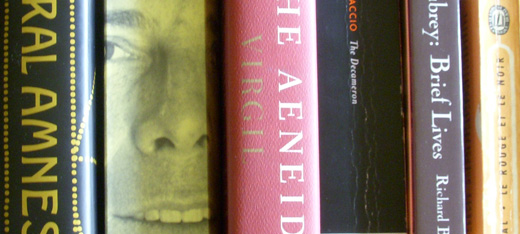Monday Morning Read
¶ Decameron X, iv is very much a young person’s tale. Don’t you remember those college bull sessions — do they still call them bull sessions? — in which someone would propose a fantastically unlikely, but nevertheless very catchy, hypothetical situation, so that everyone could chew over that most important of youthful questions, “What would you do?”
As the Tenth Day is devoted to tales of munificence and liberality, we’re not surprised that the young man who saves his lady-love from live burial does the right thing, and restores her to her husband.
¶ Aubrey on Sir Walter Raleigh: what a dog’s breakfast. I find no mention of Sir Walter’s casting his cape upon a mud puddle to spare the Queen’s slipper, but my eyes may well have glazed over. There’s a saucy story about Raleigh’s being insulted by his own son at an important banquet, and slapping him in response. The son, too “pious” to strike his father, hits someone else instead, saying, “Box about; ’twill come to my father anon.”
¶ In Merrill, “The Ring Cycle.”
The very industries whose “major funding”
Underwrote the production continue to plunder
The planet’s wealth. Erda, her cobwebs beaded
With years of seeping waste, subsides, unheeded
— Right, Mr President? Right, Texaco? —
Into a gas-blue cleft. Singers retire,
Yes, but take pupils. Not these powers, no, no.
What corporation Wotan, trained by them,
Returns gold to the disaffected river,
Or preatomic sanctity to fire?
Well put, for lines underwritten by Merrill, Lynch.
¶ Clive James on Alfred Einstein, the musicologist. Musing on Mozart’s truncated career, and on Schubert’s even more maddeningly truncated career, James concludes,
Such possibilities were always on Alfred Einstein’s mind. As a young scholar, he had the Nazi nightmare still in his future, but he had the eastern pogroms in his memory. It’s the Jewish contribution, and a very dubious privilege: to restore to the past the sense of happenstance that its great works contrive to obviate. But of course the great works contain it, too, or they could never have been created. Proper criticism bring it out: the play of chance, the capricious fire that energized the inevitability, the number of strokes of luck it takes to make something that will last.

